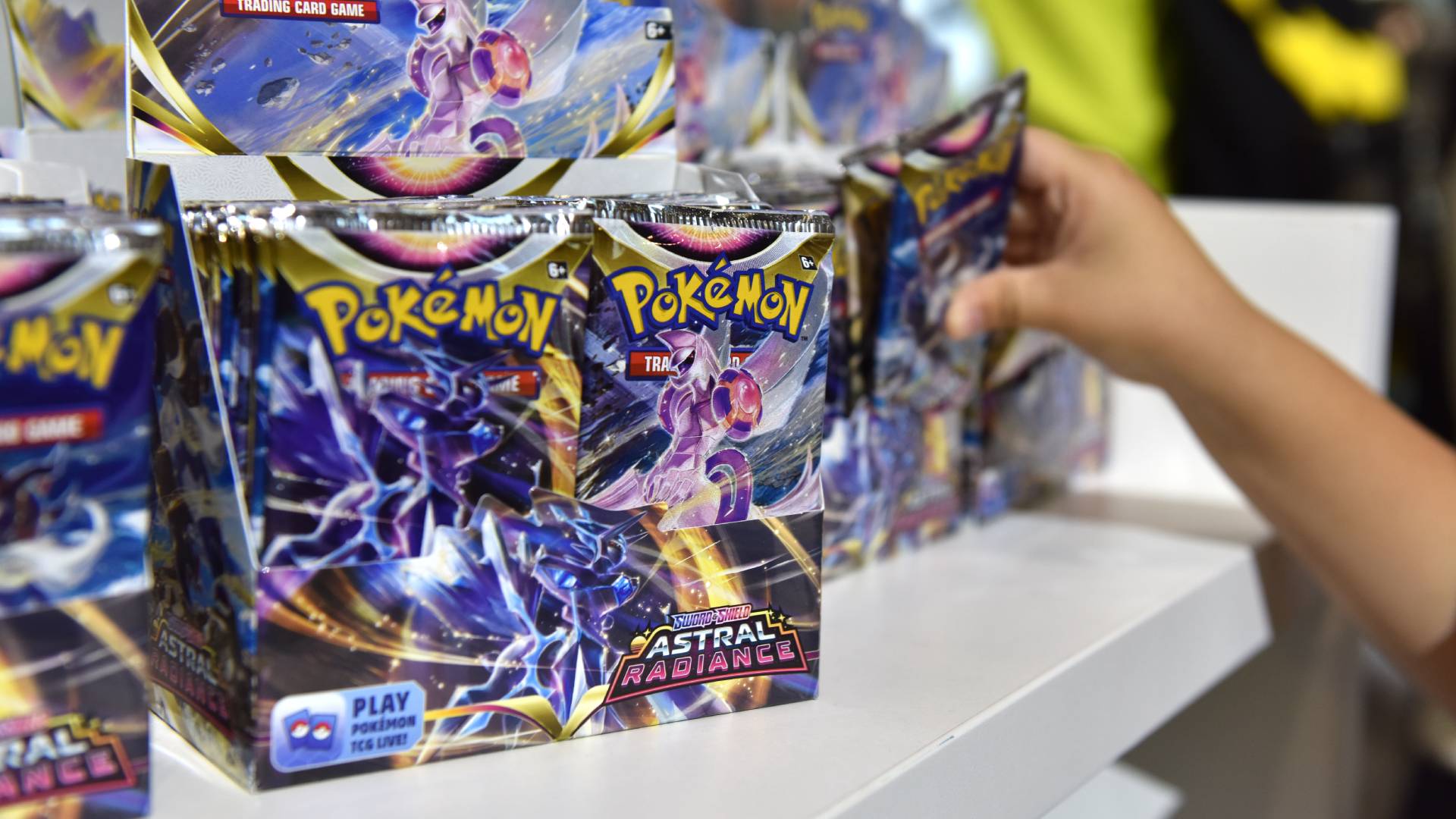This CT scanning company is sowing chaos for Pokémon card collectors by selling X-ray scans of booster packs: 'We firmly believe we stand in the zone of chaotic good'
You can find out if you're sitting on an unopened Charizard for a scant $75 per pack.

Collectible card games are fueled by speculation and chance: Unopened booster packs can have shockingly high values simply because we don't know what's in them. A single sealed Pokémon 1st edition booster pack is worth upwards of $2,000 because until it's opened, we can't be certain it doesn't hold a Charizard that could buy you a new house. This month, however, has brought upheaval for investors who've built portfolios on the Black Lotus potential of their sealed Magic: The Gathering slates, because a CT scanning company is now selling a chance to peek inside booster packs before they're opened.
Two weeks ago, Pokémon TCG YouTuber okJLUV published a video about recent efforts to examine booster packs with X-ray scanning, including a case study from Industrial Inspection & Consulting, a company that offers industrial CT scanning services to test and analyze products, machine components, and more recently, sealed Pokémon boosters.
CT scanning compiles a 3D model from 2D X-ray "slices," which can be sifted through to examine an object's interior. In its CCG scanning case study, II&C explored whether CT scanning could be used to look inside sealed CCG products, managing to successfully identify a first edition Hypno from the Pokémon TCG Fossil set after placing it between other cards to simulate a booster pack.
From there, II&C moved on to scanning actual sealed booster packs and booster kits, where it was also "able to extract the shape of the Pokémon due to slight density differences in the cards and foils." According to II&C, okJLUV's video brought an immediate explosion of attention, with the company's web traffic spiking over 17,000% as it received "endless requests to scan packs and kits from collectors, investors, and card stores."
On Pokémon card investing subreddits, collectors reassured themselves that there'd be minimal ramifications, noting that CT scanning is so expensive that it'd prevent widespread access. Days later, II&C announced that, in response to the high demand, it would be offering CT card scanning services, having "worked around the clock to develop a reliable method to provide an affordable cost per pack for CT scanning." Collectors can request a quote to have their boosters X-rayed starting at $75 per pack.
To learn more, and to work through some of the lingering childhood trauma from the time my brother convinced me to trade him my base set Charizard so he could sell it for a measly 35 bucks, I asked II&C why CT scanning booster packs is suddenly feasible. Answering via email, II&C said there's nothing particularly new about its technology or methods.
"We have worked on products deployed to outer space and the depths of the ocean," II&C said. "Because we have seen almost every type of product there wasn't much technical refining for this process." The company's main innovation, it says, was making the process affordable.
Keep up to date with the most important stories and the best deals, as picked by the PC Gamer team.
"Because it's expensive technology to operate and manage," II&C said, "most who may have considered it were unable to find a value proposition to make it worthwhile."
Shored up by its other CT analysis services, II&C's solution was to leave the pack analysis to the customer. After a collector's packs are scanned, they receive a link to download the CT scan data and software to view it, meaning II&C doesn't have to spend time and money poring over the scans to identify cards. The $75 price point, II&C said, is "only possible because we are putting the evaluation into the consumers’ hands."
At $75 a scan—almost twenty times the cost of a current-day Pokémon TCG booster pack—II&C's card scanning is probably outside the casual collector's budget. Even so, II&C was unprepared for the scale of response. "One colleague jokingly bet another $100 that we would have 10 requests over the next week," II&C said. "We had 10 requests in the first two hours."
The response hasn't been entirely positive, however. Theoretically, someone selling boosters could have them scanned, keep any valuable cards for their own ends, and offload the still-unopened junk. Collectors have shared fears that, in a world where boosters might've been combed over with a CT scan, the value of unopened packs will plummet. "For the vintage collectors who like loose packs this is like worst case scenario," one redditor writes. A YouTube commenter left an even harsher take on II&C's case study video: "This is disgusting! Get this shit away from trading cards now! If anyone buys into this service you are basically a traitor to the hobby."
While some might see an expanding frontier of bold new grifts to come, II&C sees the service as an equalizing force between collectors and scammers. "We can't put the toothpaste back in the tube. The only direction for us is forward, because if we don't offer this now another company will later," II&C said. "And if we don't offer it now then bad actors and scammers will expedite their advantage over average hobbyists. We firmly believe we stand in the zone of chaotic good."
Lincoln has been writing about games for 11 years—unless you include the essays about procedural storytelling in Dwarf Fortress he convinced his college professors to accept. Leveraging the brainworms from a youth spent in World of Warcraft to write for sites like Waypoint, Polygon, and Fanbyte, Lincoln spent three years freelancing for PC Gamer before joining on as a full-time News Writer in 2024, bringing an expertise in Caves of Qud bird diplomacy, getting sons killed in Crusader Kings, and hitting dinosaurs with hammers in Monster Hunter.


